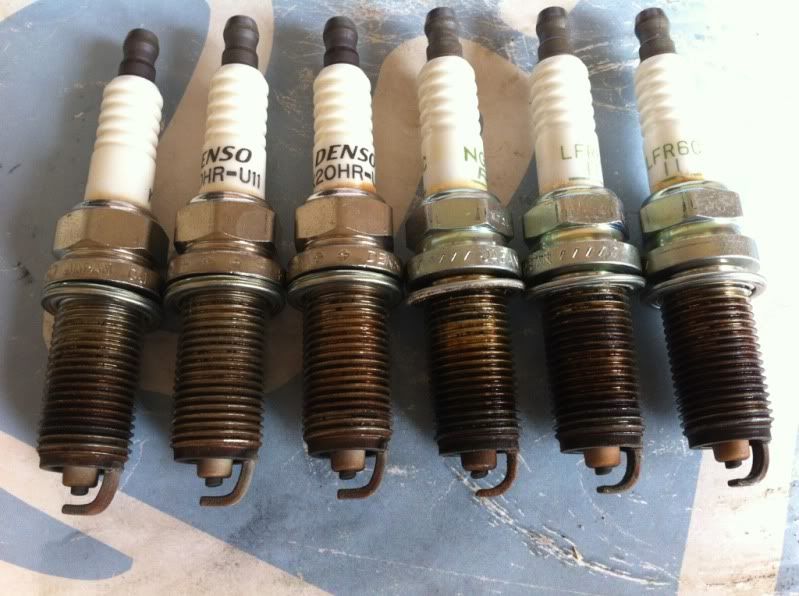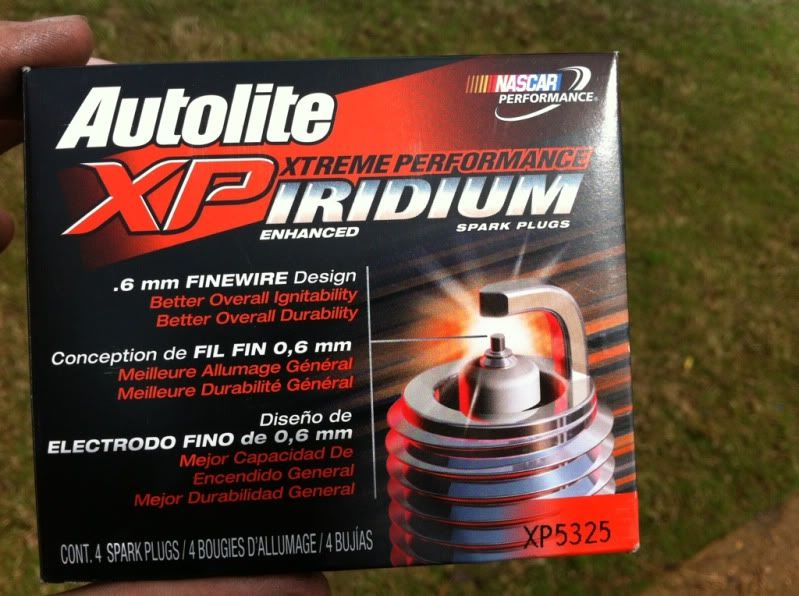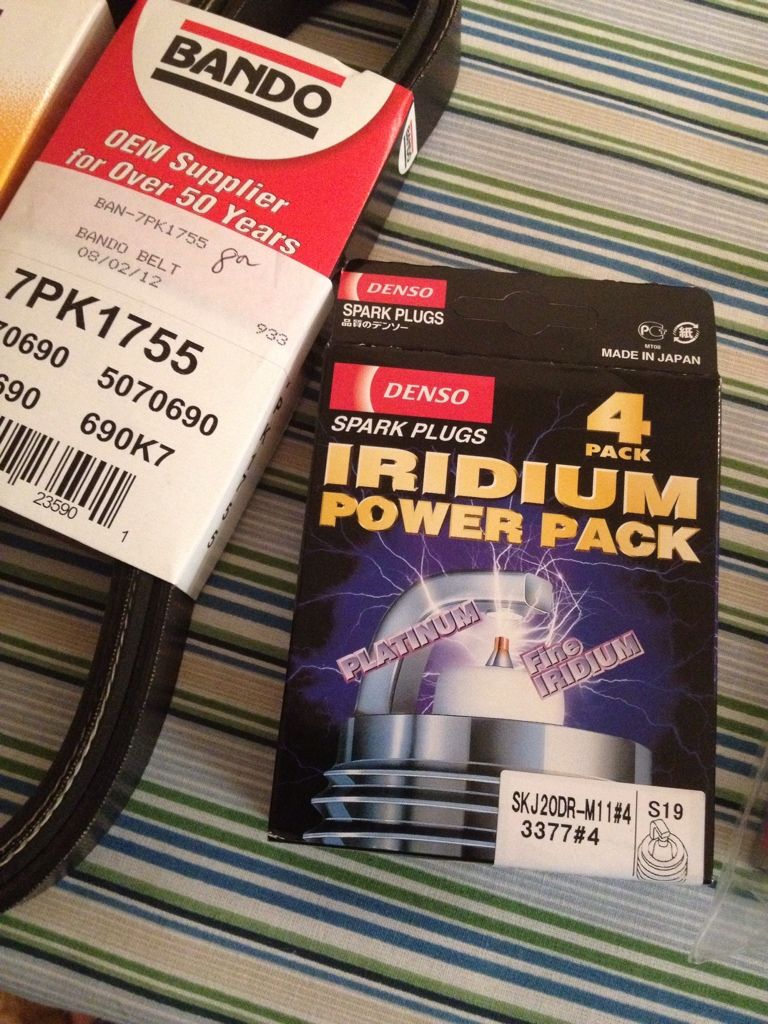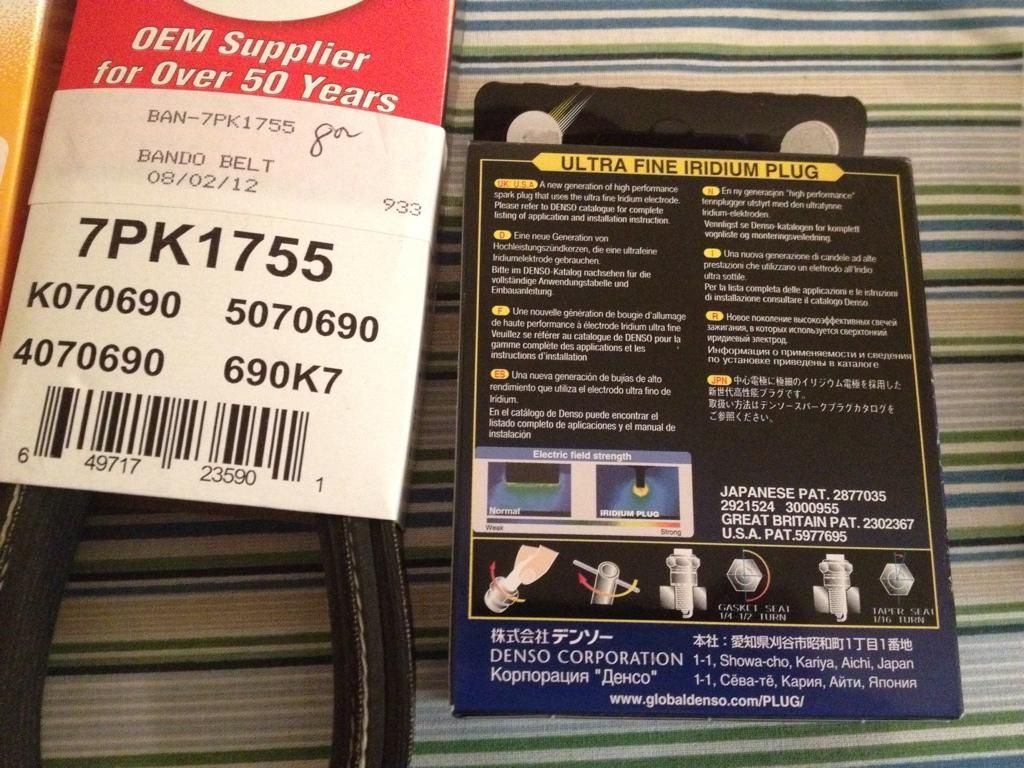Originally Posted By: Hootbro
Originally Posted By: john_pifer
The 05+ Tacoma 4.0L uses direct ignition. Mine is an 07.
The old 3.4L Tacoma used waste spark ignition.
Quite honestly, I would not draw any engineering level conclusion with your examples or pictures.
If your pic was from a normal 30K plug change, maybe. Other than that, to many other factors come into play as either maker made them 30K plugs and not 90K plugs and beyond 30K, you make the assumption that wear rates on the electrode tip should be linear when it may have not been designed that way for the NGK.
Quite frankly, that far right Denso towards the middle, looks just as bad as the NGK plugs.
Either way, it looks like both brands held up well.
No engineering doctorate needed to see that the ground electrodes on the Denso plugs are thicker than the ground electrodes on the NGKs. Whether that's due to the NGK GEs being thinner from the factory (my conclusion) or to them actually eroding faster, who knows.
Were they run 3x longer than called for in the FSM? Yes. However, it's obvious to see that, left in service, the NGK plugs would have failed before the Denso, due to one or more ground electrodes dwindling down to nothing due to spark erosion. That makes it obvious to me which plugs are built stouter.
Originally Posted By: PandaBear
Originally Posted By: john_pifer
In my experience, the Denso are built stouter than NGK.
My V6 Tacoma came from the factory with Denso on one side of the engine, and NGK on the other.
My truck came with copper spark plugs, and I ran them about three times as long as you're supposed to, according to the scheduled maint. guide, which calls for them to be changed at 30K.
As you can see from this pic, the ground electrodes on the NGK plugs are significantly more eroded than the Denso plugs. One of the NGKs, as you can see, is even more eroded than the other two. That one came out of the driver's side rear cylinder.

That being said, I don't have a new Denso and a new NGK to compare - it's possible that the NGKs start out with thinner ground electrodes.
Replaced with these:

That is not a valid comparison, because each bank is firing differently due to waste spark ignition. The reverse firing bank will have less wear on the center electrode and more on the outer electrode, the opposite on the regular firing bank. I have similar difference in wear on the same plug type (Motorcraft OEM, Autolite copper) on Ford Taurus and Escort.
These plugs came from a Tacoma 4.0, which uses Direct Ignition. The old 3.4 uses Waste Spark Ignition.
Originally Posted By: john_pifer
The 05+ Tacoma 4.0L uses direct ignition. Mine is an 07.
The old 3.4L Tacoma used waste spark ignition.
Quite honestly, I would not draw any engineering level conclusion with your examples or pictures.
If your pic was from a normal 30K plug change, maybe. Other than that, to many other factors come into play as either maker made them 30K plugs and not 90K plugs and beyond 30K, you make the assumption that wear rates on the electrode tip should be linear when it may have not been designed that way for the NGK.
Quite frankly, that far right Denso towards the middle, looks just as bad as the NGK plugs.
Either way, it looks like both brands held up well.
No engineering doctorate needed to see that the ground electrodes on the Denso plugs are thicker than the ground electrodes on the NGKs. Whether that's due to the NGK GEs being thinner from the factory (my conclusion) or to them actually eroding faster, who knows.
Were they run 3x longer than called for in the FSM? Yes. However, it's obvious to see that, left in service, the NGK plugs would have failed before the Denso, due to one or more ground electrodes dwindling down to nothing due to spark erosion. That makes it obvious to me which plugs are built stouter.
Originally Posted By: PandaBear
Originally Posted By: john_pifer
In my experience, the Denso are built stouter than NGK.
My V6 Tacoma came from the factory with Denso on one side of the engine, and NGK on the other.
My truck came with copper spark plugs, and I ran them about three times as long as you're supposed to, according to the scheduled maint. guide, which calls for them to be changed at 30K.
As you can see from this pic, the ground electrodes on the NGK plugs are significantly more eroded than the Denso plugs. One of the NGKs, as you can see, is even more eroded than the other two. That one came out of the driver's side rear cylinder.

That being said, I don't have a new Denso and a new NGK to compare - it's possible that the NGKs start out with thinner ground electrodes.
Replaced with these:

That is not a valid comparison, because each bank is firing differently due to waste spark ignition. The reverse firing bank will have less wear on the center electrode and more on the outer electrode, the opposite on the regular firing bank. I have similar difference in wear on the same plug type (Motorcraft OEM, Autolite copper) on Ford Taurus and Escort.
These plugs came from a Tacoma 4.0, which uses Direct Ignition. The old 3.4 uses Waste Spark Ignition.




